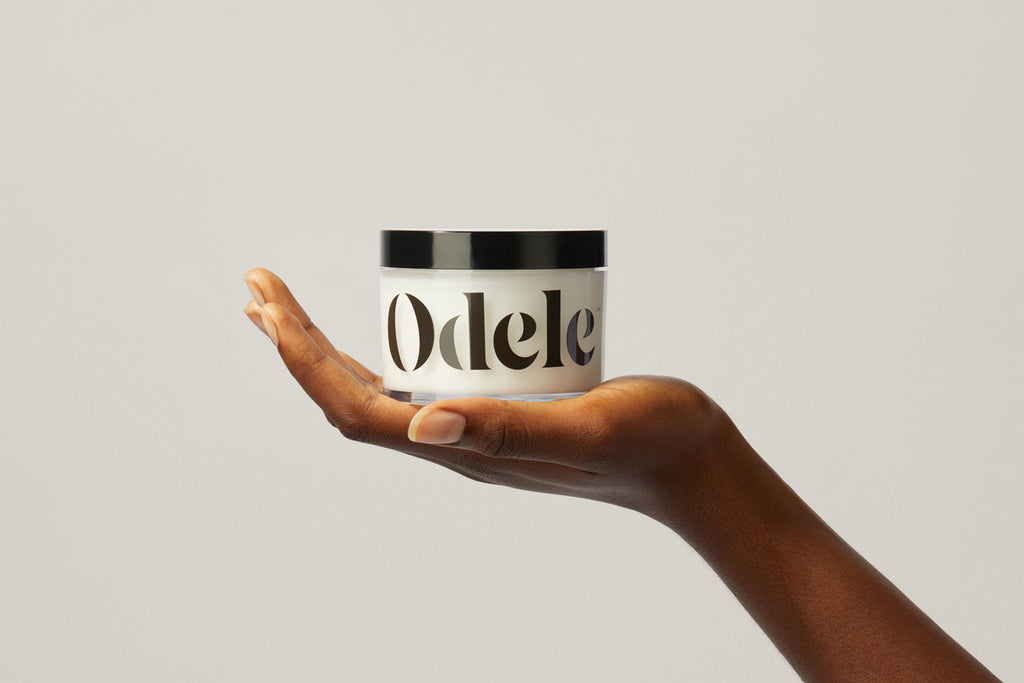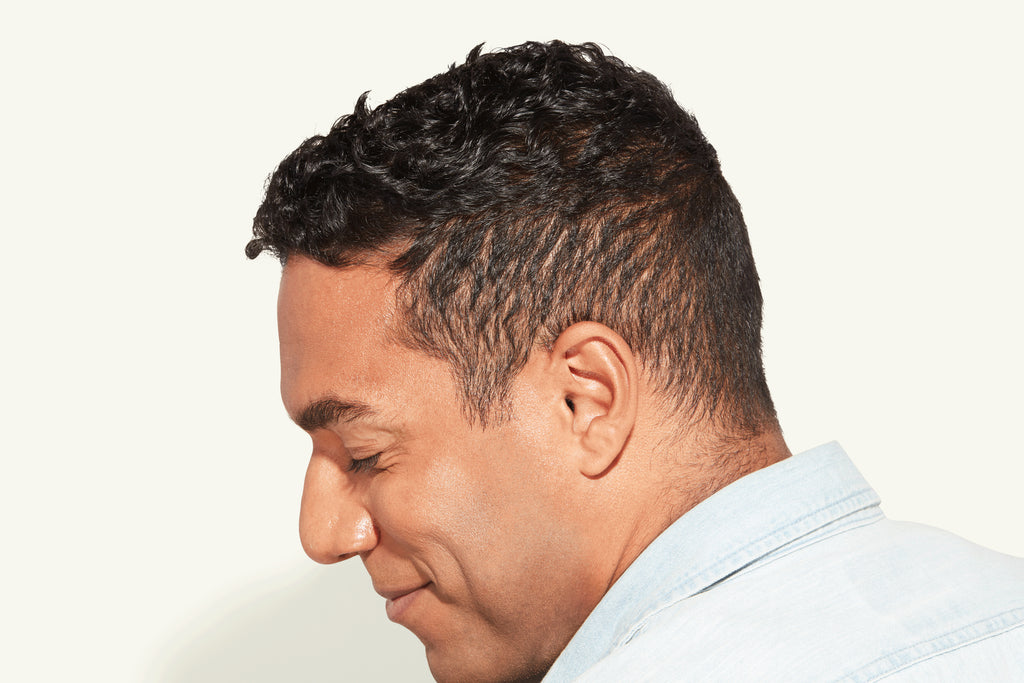Got flakes? You might immediately think: dandruff. But dandruff and dry scalp are two different issues that often get mixed up.
Both can be uncomfortable (and we know, a little embarrassing), but they’re usually easy to treat. The first step is to figure out which one you’re dealing with so you can take the right approach.
Here’s everything to know about dandruff vs. dry scalp—plus how to get your scalp healthy and clear again.
What is dandruff?
Dandruff, aka seborrheic dermatitis, is a fungal scalp condition. It’s a medical condition triggered by an overgrowth of Malassezia, a fungus that naturally lives on the skin, which makes the skin cells multiply and shed faster than usual (causing all those flakes).
About 50 percent of adults deal with dandruff, so if you’re one of them, you’re not alone! And no, it’s not contagious, although it may be genetic.
What causes dandruff?
Many things can contribute to dandruff, but studies show it to be a combination of mostly internal factors (like genetics and hormones). Stress also causes inflammation that can trigger dandruff or make it worse (in case you need another reason not to skip that morning meditation).
Anyone can get dandruff, but you’re more likely to have it if:
- you’re male
- it runs in your family
- you’re going through hormonal changes
- you have a very oily scalp where fungus can thrive
- you deal with chronic stress
- you have a weakened immune system or nutrient deficiencies
- you’re taking certain medications (e.g., lithium)
What causes dry scalp?
While dandruff is considered a medical condition, dry scalp is more of a moisture issue. When your scalp is dehydrated, the excessive dryness causes irritation that makes the skin itch, flake and shed—similar to dry skin elsewhere on your body.
You’re more likely to have a dry scalp if:
- you have dry, sensitive skin or a condition like eczema or psoriasis
- you wash your hair too often
- you use drying hair products
- you’re in a dry climate
- you aren’t drinking enough water
Dandruff vs. dry scalp: how to tell the difference
Not sure which one you have? Part your hair and take a peek at your scalp. You can usually tell by how the flakes look:
Dandruff flakes are oily and yellow-ish. Your scalp skin may look clumpy and scaly and shed off in bigger, more noticeable flakes.
Dry scalp flakes are dry and white. These flakes are smaller and fall more like dust. (Dry skin on other parts of your body can hint that your scalp is lacking hydration, too.)
Treatment and prevention tips
How to treat dandruff
If it’s on the mild side, you can try washing your hair daily with an over-the-counter dandruff shampoo. Look for antifungal and antimicrobial ingredients like selenium sulfide, pyrithione zinc, ketoconazole and tea tree oil.
If your dandruff is more severe, or if the over-the-counter stuff isn’t cutting it after several weeks, see your doctor or dermatologist. It’s always a good idea to rule out other health conditions, and they can prescribe stronger topical or oral medications.
Other tips for preventing and managing dandruff:
Explore vitamin D3 supplements. Research shows that vitamin D helps slow the rate of rapid skin cell growth—which can help get the flaking under control. As always, consult your doctor before taking any new supplements.
Find ways to reduce stress that work for you. As mentioned earlier, stress can trigger dandruff and make symptoms worse. Lowering stress helps to lower inflammation in your body, leading to healthier outcomes all around. Getting exercise, good sleep and outdoor time are all great ways to manage stress, but it’s all about finding what works for you. Here are a few more easy ideas.
Mind the moisture and use your blow dryer responsibly. We’re all about that air dry life, but fungus tends to thrive in moist conditions, so you may want to revise your post-shower approach if your hair generally takes a long time to dry. You’ll definitely want to avoid putting your hair up in a ponytail or a bun while it’s wet or damp as that will trap more moisture against your scalp for longer (it’s damaging for your hair, too!). And you may want to blow dry your roots on a low-heat or no-heat setting for a gentle assist.
How to treat dry scalp
Scalp dryness is something that can come and go (depending on the season, your styling habits and products, etc.), or it can simply be the nature of your scalp.
Either way, here are some simple ways to reduce flakes and restore moisture:
- Exfoliate before you shampoo. Loosen up buildup and flakes with a gentle scalp massager or scrub.

Wash with a gentle, moisturizing shampoo. Since your scalp’s lacking moisture, stick with gentle, sulfate-free shampoos that have moisturizing ingredients, like our Ultra Sensitive Shampoo (especially great for those with sensitive skin and eczema) or our Moisture Repair Shampoo.
Wash less often. An itchy, dry scalp could be a sign you need to lighten up your shampoo schedule. Here’s everything to consider when deciding how often to wash your hair.
Check your styling products for drying ingredients. Simple alcohols in particular can really dry out your hair and scalp, so it’s best to steer clear of these if boosting moisture is the name of the game. Lots of hair care products contain simple alcohols (like isopropyl alcohol) in tiny quantities as non-active ingredients, but avoid products that list them as a main ingredient (in the first five to 10 listed).
Get a humidifier. If you live somewhere that gets really dry (here in Minnesota, our winters are intense!), consider adding a humidifier to your home to pump moisture back into the air. Keep in mind summer and winter are the driest seasons in a lot of places, so you may need more moisture than usual during those times of year.
Use sun protection. Wear a hat or scarf to shield your scalp from sunburns.











